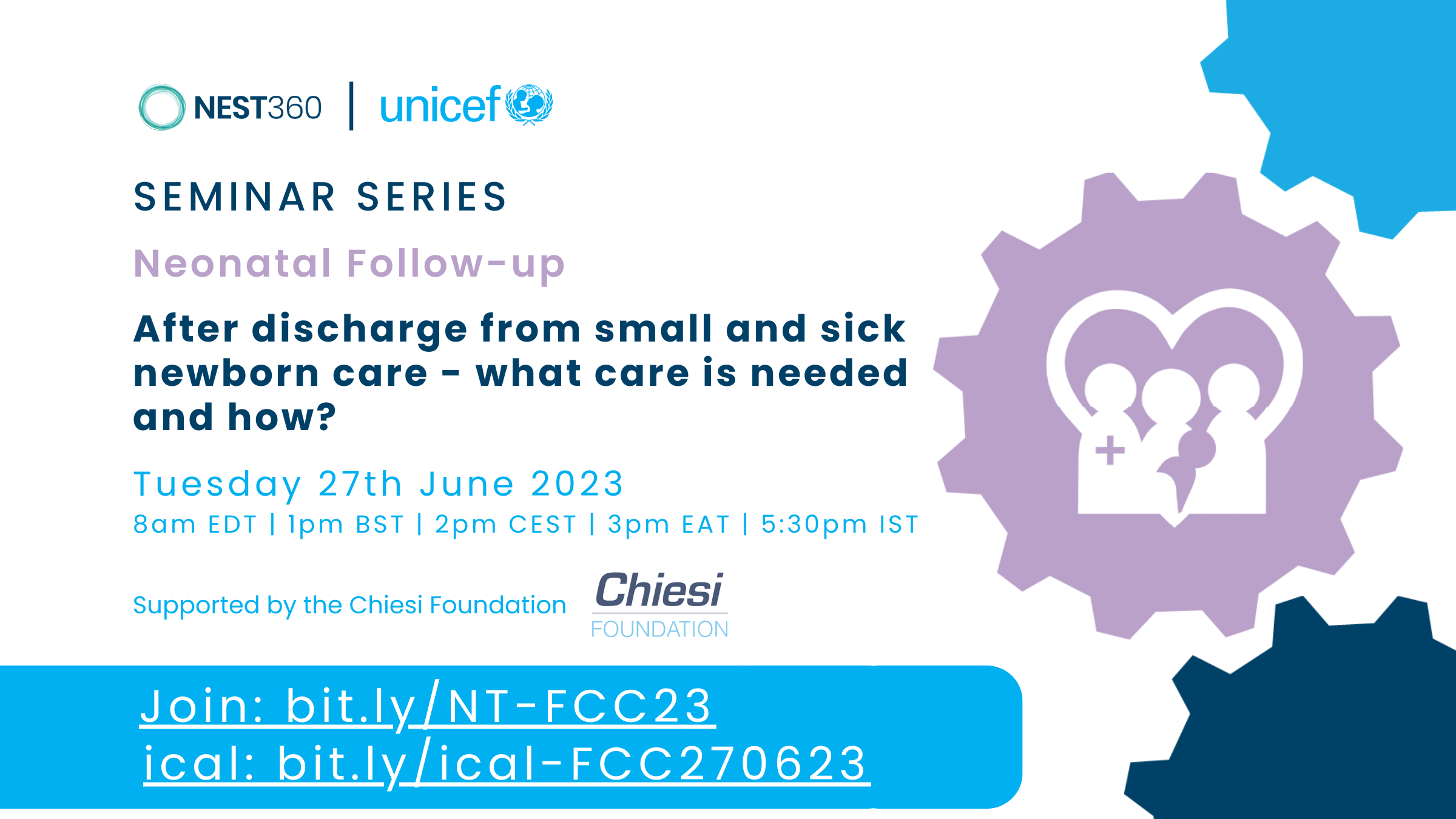By London School of Hygiene and Tropical Medicine & UNICEF

On June 27, the Implementation Toolkit for Small and Sick Newborn Care held a seminar on Neonatal Follow-up. Discussions were led by experts in the newborn health space focused on interventions after discharge from small and sick newborn care including ‘what care is needed and how?’
Watch the webinar
The webinar had over 150 attendees from all over the world and included speakers who shared their expertise on the following topics:
- Nurturing care after neonatal discharge: an overview, Dr Louise Tina Day, London School of Hygiene and Tropical Medicine
"If family are involved with care during admission, they build those skills and confidence which can equip them to carry on providing that care after discharge. Each baby is an individual with their own particular needs and so it’s important that we think about that individual baby and their follow-up, if they might need investigations or procedures in collaboration with the parents and primary health care providers in the community."
-Dr Tina Louise Day, London School of Hygiene and Tropical Medicine
- India national scale up of post discharge neonatal care, Dr Vivek Virendra Singh, UNICEF
"The reason that this is important is for children not just to survive and thrive… so now countries have capacity to work on the survival issues. This is improving across many state systems. Countries are now trying to focus on the thrive component of it and that is in response to the Every Newborn Action Plan."
-Dr Vivek Virendra Singh, UNICEF
- Hospital to Home (H2H) programme in three districts of Central Uganda, The Adara Group
"Significant challenges exist for parents and families of high risk infants in low resource settings like Uganda including lack of funds, lack of transport and availability of NICU services. These challenges result in a number of parents not bringing their infants back for a follow-up visit. To address this identified gap Adara developed Hospital to Home, a follow-up program to support small and sick babies both in the hospital and back at home."
-The Adara Group
Family peer support groups for newborns who develop disability; the example of Baby Ubuntu by Rachel Lassman, London School of Hygiene and Tropical Medicine
"Baby Ubuntu is an innovative early care and support programme for children with developmental disabilities. Often the small and sick newborn are more at risk of developing developmental disability. Globally we have 53 million children with developmental disabilities with the majority living in low and middle-income countries. So supporting these children after discharge is of great importance."
-Rachel Lassman, London School of Hygiene and Tropical Medicine
The session was moderated by Dr. Nahya Salim, Ifakara Health Institute & Muhumbili University of Health and Allied Sciences
Further tools, learnings, and resources to support follow-up care for small and sick newborns can be found on the Newborn Toolkit website under the family centred care discharge & early child development section.
To view this seminar in French, please visit the Newborn Toolkit website.
Get Involved with the Implementation Toolkit for Small and Sick Newborn Care!
For more information on how to get involved in opportunities and events with the Implementation Toolkit for Small and Sick Newborn Care, join our mailing lists and social media!
Join our mailing list for French-speaking subscribers.
Join our mailing list for English-speaking subscribers.
Follow the Newborn Toolkit on Twitter - @NewbornToolkit.
For any resource or tool suggestions, in English or French, please share them for review using our online submission portal. To request a newborn care webinar topic or for other inquiries please contact newborntoolkit@nest360.org.
Thank you to our many collaborators including NEST360, UNICEF, the African Neonatal Association, the Chiesi Foundation, and others.

.png?sfvrsn=6d0e27cd_1)



